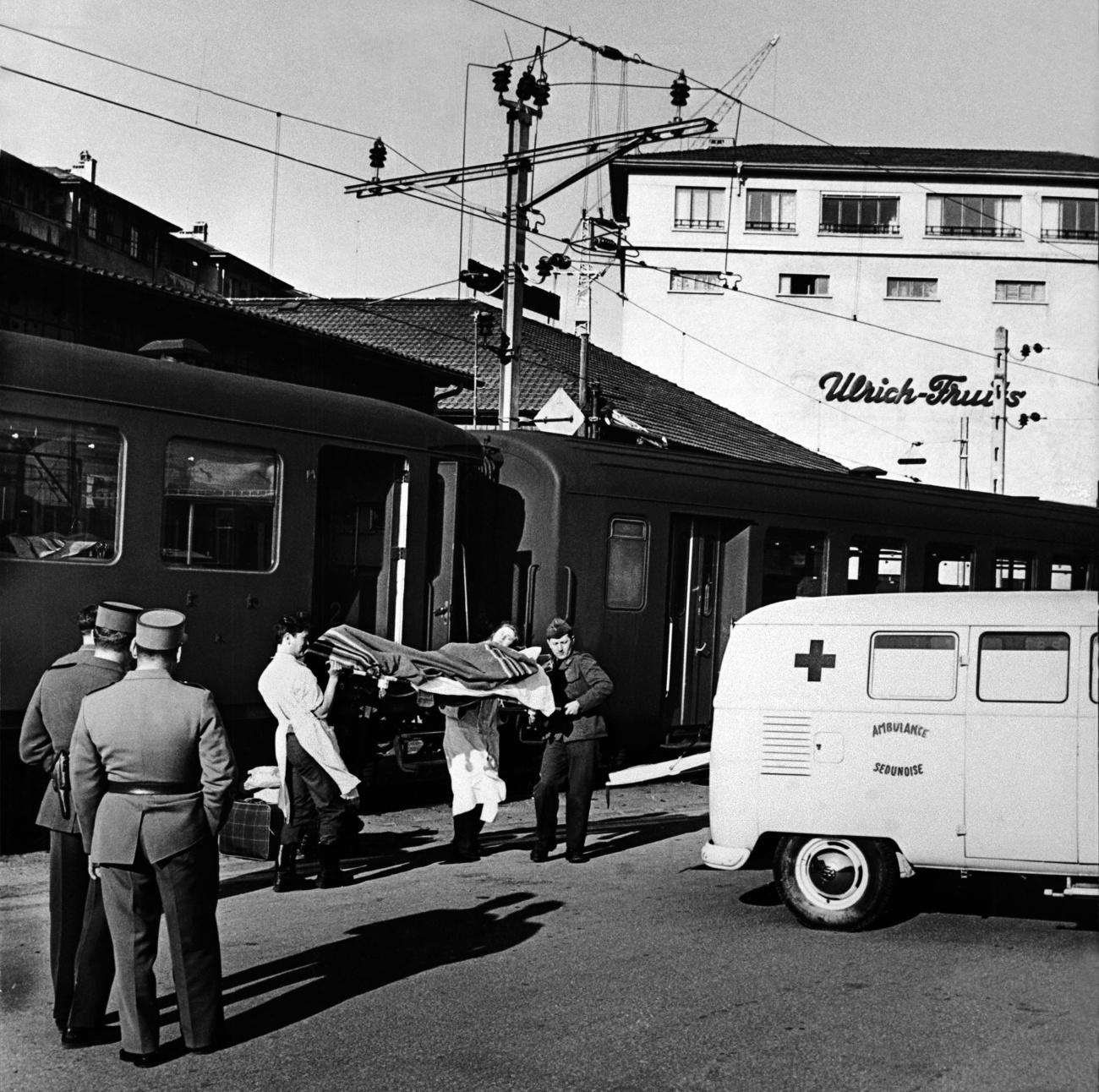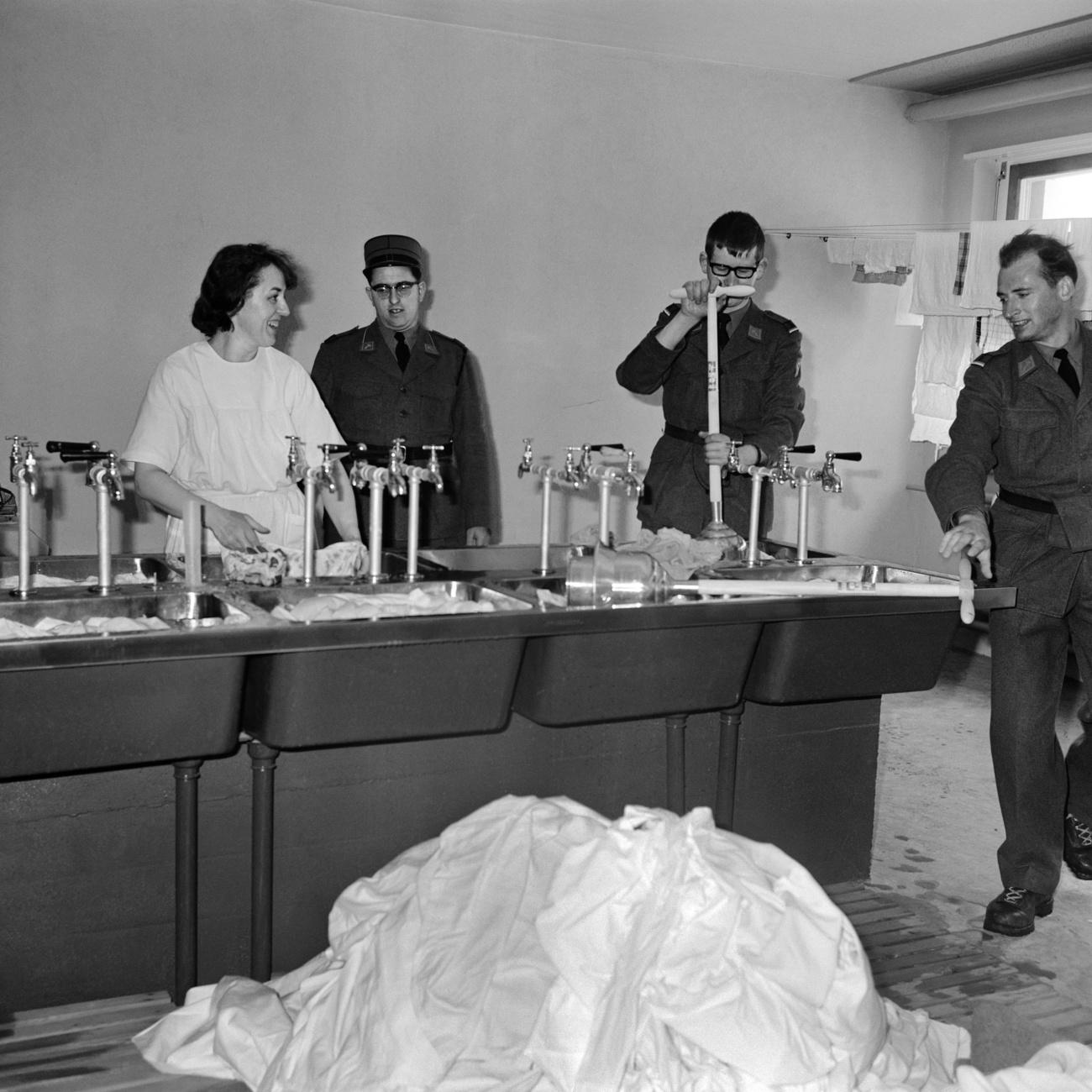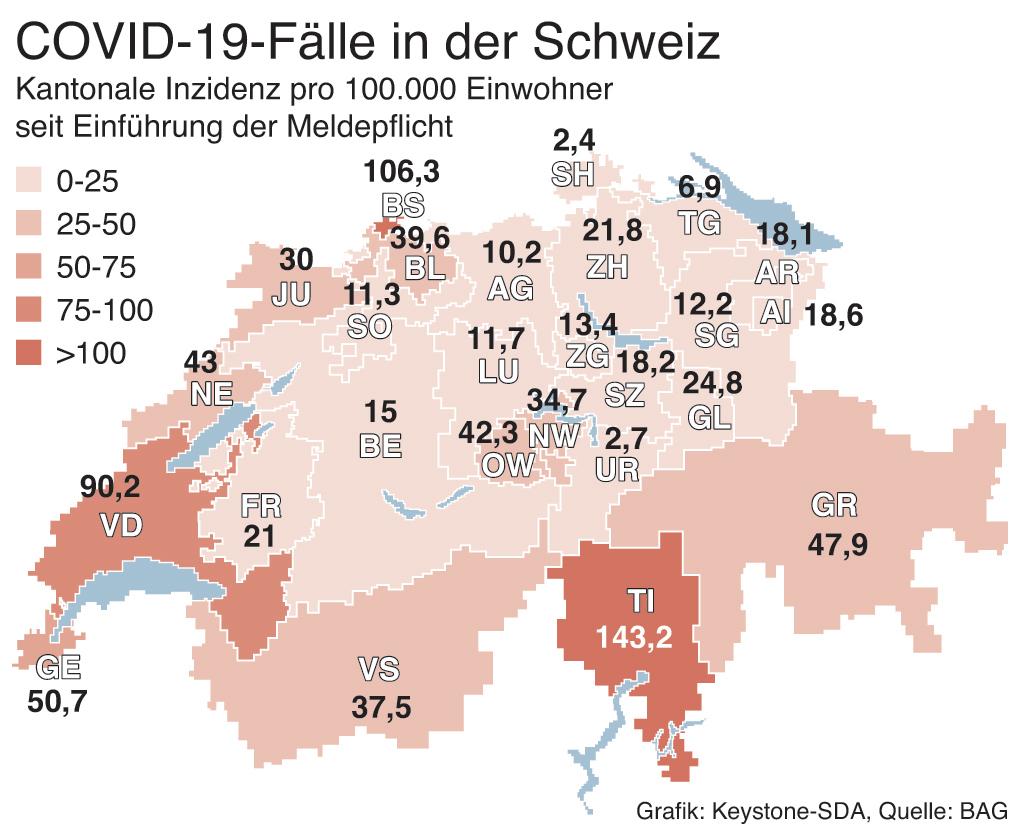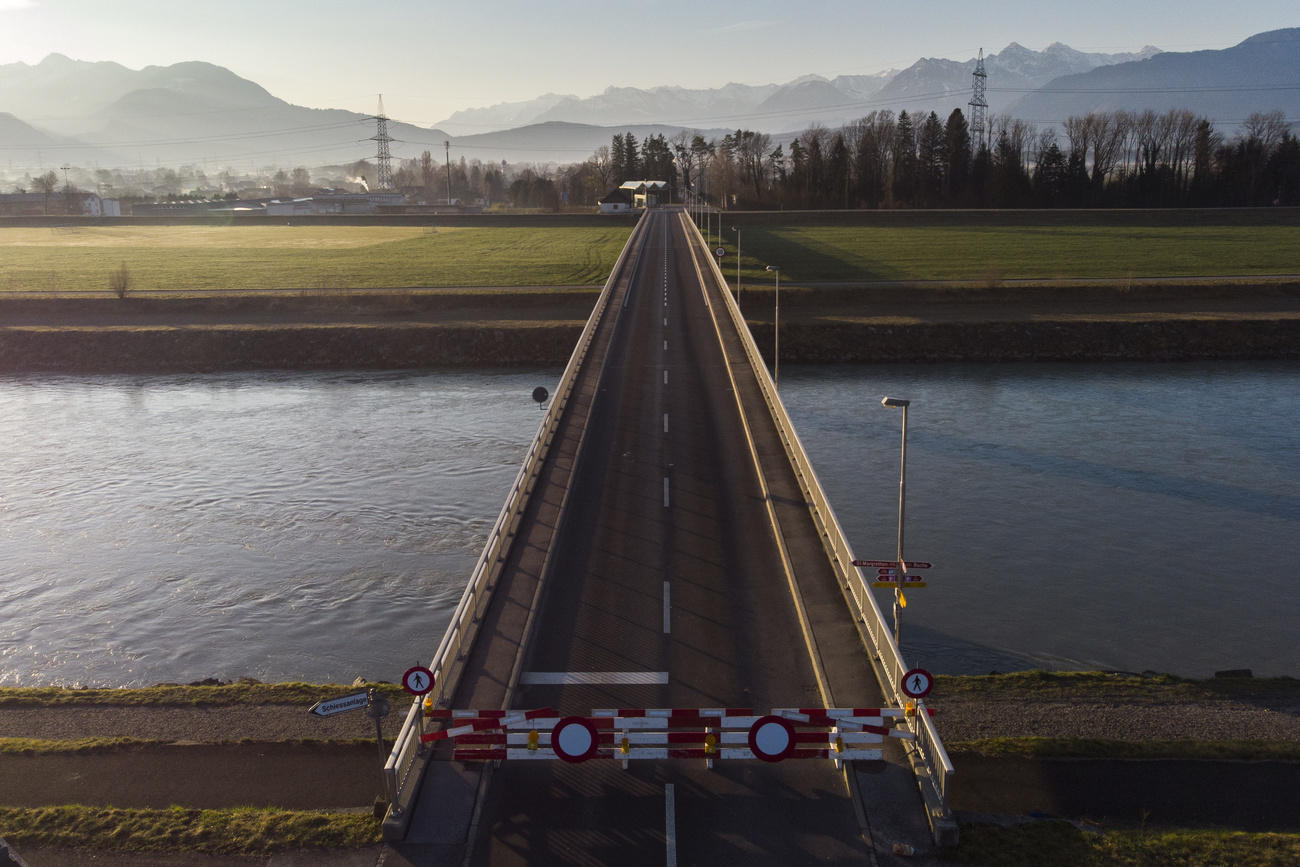When a typhoid epidemic hit Zermatt

This is not the first time Switzerland and its mountain regions have had to deal with the devastating effects of disease in recent times. In 1963, a deadly typhoid epidemic broke out in the resort of Zermatt.
On Friday March 15, 1963, around 7,000 holidaymakers were enjoying the Alpine air and slopes of the mountain resort of Zermatt, canton Valais, when a press release from the local authorities shattered the calm: two cases of typhoid had been detected in the village.
British newspapers reported that a dozen patients had been repatriated due to the outbreak and 40 suspected cases were being treated on the spot, while 30 others had been transported by helicopter and special train to nearby hospitals. Pierre Calpini, head of the Valais health service, warned that the situation was under control, but panic was spreading.
Immediately, a medical team of 30 soldiers was deployed to Zermatt, including a wagon specially equipped to transport patients. The hygiene team set up a laboratory, took samples from people in the resort and disinfected patients’ rooms, kitchens and toilets.
On March 23, one week after the first alert, the authorities announced three fatal cases: a 62-year-old woman from Zermatt, who was the mother of 13 children, a 22-year-old hotel employee and a 25-year-old British sailor on a ski holiday.
At the end of March, the authorities ordered the closure of all hotels, guest houses and holiday apartments. The resort became a ghost town: “No one will come to Zermatt anymore,” the villagers feared.

At the beginning of April, the epidemic disappeared. There had been suspicions that a worker from Lecce, in southern Italy, who had been helping with the construction of the nearby Zmutt dam, had initially spread the disease. But they were proven unfounded, as the bacteria were not the same.
Finally, the source was detected: miners who were drilling 100 km of tunnels for the Grande-Dixence dam. They were found to be working above a drinking water source which led to the contamination of the water at Zermatt.
In the end, 437 villagers and tourists – Swiss, French, German, British and American – were affected by the typhoid outbreak.
Afterwards, the local authorities and hotel owners in Zermatt launched a campaign to improve the image of the resort. Anyone who had fallen ill was offered three weeks’ free holiday and was compensated for any medical costs and loss of earnings.
Retired radio journalist Daniel Favre from Lausanne has not forgotten the events.
“I was in the resort for two days, invited to cover some tourist news. One morning, the authorities and the press announced that the drinking water was polluted and could trigger cases of typhoid. That night, I sprayed my apricot trees with tap water. I remember that I was able to leave the station quite quickly, but in Lausanne, the Radio Romande management asked me to kindly remain confined in my apartment for 14 days…”.

More
Coronavirus: the situation in Switzerland
Translated from French by Simon Bradley

In compliance with the JTI standards
More: SWI swissinfo.ch certified by the Journalism Trust Initiative



You can find an overview of ongoing debates with our journalists here. Please join us!
If you want to start a conversation about a topic raised in this article or want to report factual errors, email us at english@swissinfo.ch.